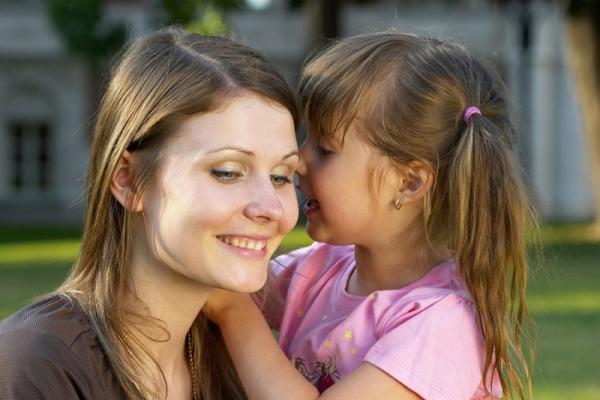
We all do it. When someone is talking to us, we start formulating in our heads our next response or what we want to add to the conversation. When you do this, you aren't really listening. You are pretending to listen and hearing what you want to hear rather than what the person is trying to convey to you.
One parenting expert, Alfie Kohn, puts it this way. "If talking to our children about what they've done wrong fails to bring about the results we are hoping for, it isn't because some stronger form of discipline is required. It may be because we did most of the talking. Maybe we were so busy trying to get them to see our point of view that we didn't really hear theirs. To be a parent is more of a function of listening than explaining."
When children are young, it is hard to figure out what might be bothering them because they can't verbally express what they are thinking and feeling. We must be aware of the non-verbal cues that they are expressing. This can be paying attention to your child's body language, facial expressions, or gestures.
Listen with your eyes
John Gottman, another parenting expert, says, "Listening means far more than collecting data with your ears. Empathetic listeners use their eyes to watch for physical evidence of their child's emotions. They use their imaginations to see the situation from the child's perspective. They use their words to reflect back, in a soothing, noncritical way, on what they hear and to help their children label their emotions. But most importantly, they use their hearts to feel what their children are feeling."
Listen without judgment
When children are old enough to express what they are thinking and feeling, parents' roles as listeners change. It is now their job to create an environment and an open relationship with the child, so they feel comfortable talking to you about anything they wish. This takes patience and work on your part. You have to listen without judgment, making sure that they can share certain things with you without the fear of getting in trouble, feeling condemned, or ashamed for what they have done, think or feel.
This does not mean you should not have rules or boundaries set for your children. Instead, this means that even though they know the limits set for them if they disobey they can still come to you for advice and help.
Learning through mistakes
One parenting style, which is based on love and logic, suggests that you view mistakes as opportunities to learn. This means, as parents, we exhibit patience when they fail. Based on the child's cognitive development, we can let our children suffer the natural consequences and learn from their mistakes. The best way to learn is through experience. Everyone fails at times in their lives. Children seem to fail more often because they are in the early stages of life and are trying to figure everything out. We can understand that and express patience and understanding.
Instead of telling them what they did wrong and why, we can get off our soapbox, get down to their level and just listen. We can let them tell us what they did wrong, and the reason they believe so. This allows our children to learn from their experience and be accountable for their actions.
5 helpful things to keep in mind when listening to your child
1. Be aware of your body language. Children can tell if you are preoccupied with something else or if you are really listening to them.
2. Reflect back what you hear and notice. This demonstrates that you are listening and care about what they are sharing with you.
3. Share simple observations. As you listen to your child in an emotional moment, be aware that sharing simple observations usually works better than probing questions to get a conversation rolling.
4. It's better to reflect back on what you notice. "You seem a little tired today." Instead of, "You're tired because you stayed up late last night doing your homework."
5. Share examples from your own life. Sharing examples from your own life can also be an effective way to demonstrate your understanding.
Good parenting doesn't happen overnight, nor becoming a good listener. Each day, we need to make a conscious effort to really listen to our children and those around us. It is amazing the things we can learn from just listening.

